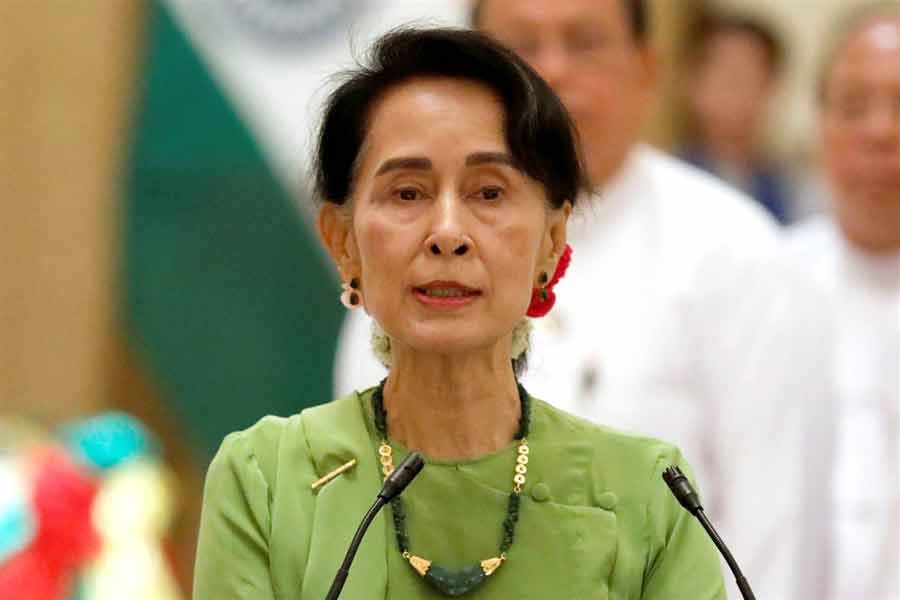Myanmar leader Aung San Suu Kyi has overseen what is said to be the world's fastest growing refugee crisis, as hundreds of thousands of Rohingya Muslims fled to Bangladesh.
Risking death by sea or on foot, more than half a million have fled persecution in northern Rakhine state since August 2017. The government sees the Rohingya as illegal immigrants from Bangladesh and denies them citizenship
Many of those who have fled describe troops and Rakhine Buddhist mobs burning their villages and attacking civilians.
But Myanmar's military says it is fighting Rohingya militants, and denies ever targeting civilians.
Ms Suu Kyi, a Nobel Peace Prize winner who lived under house arrest for many years for her pro-democracy activism, is facing allegations that she has failed to speak out over violence against the Rohingyas.
So what has she said?
Human rights heroine
In 2012, more than 20 years after being awarded the Nobel Peace Prize, Ms Suu Kyi gave her acceptance speech in Oslo. She said the prize "had drawn the attention of the world to the struggle for democracy and human rights in Burma [Myanmar]".
"Burma is a country of many ethnic nationalities and faith in its future can be founded only on a true spirit of union," she said, before reading some of her "favourite passages" from the Universal Declaration of Human Rights.
"Ultimately our aim should be to create a world free from the displaced, the homeless and the hopeless, a world of which each and every corner is a true sanctuary where the inhabitants will have the freedom and the capacity to live in peace".
They are the words of someone who, for many years, was hailed as the heroine of the human rights community. From the early 1990s until her final release from house arrest in 2010 she was a brave symbol of defiance against what was then a brutal military dictatorship, reports BBC.
Staying quiet
The same year she delivered her Nobel speech, an outbreak of communal violence in Myanmar saw more than 100,000 Rohingya people displaced and forced to live in makeshift refugee camps. At least 200 people were killed in fierce clashes between Buddhist and Muslim communities in Rakhine state.
Ms Suu Kyi, who was leader of the opposition at the time, sought to reassure the international community and pledged to "abide by our commitment to human rights and democratic value".
But critics accused her of staying quiet, and one senior British minister told The Independent newspaper: "Frankly, I would expect her to provide moral leadership on this subject but she hasn't really spoken about it at all."
The displacement of the Rohingya continued in 2013, and by the autumn more than 140,000 people had been forced to leave their homes. The violence had spread from Rakhine state to other areas including central Myanmar, and substantial international assistance was being channelled through NGOs and UN agencies.


